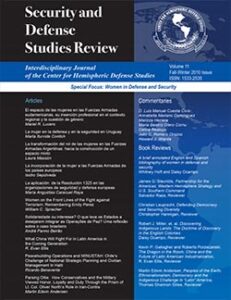Throughout the last decades, the armies of the European countries have evolved in a non-concerted but convergent way, developing common characteristics among which the growing integration of women, both in the troop class and in the officer ranks, stands out. This work makes a comparative exercise of the different national cases, establishing as basic elements of analysis the antecedents of the presence of women in the Army, the normative evolution that has protected and governed their incorporation to the ranks, their specific quantitative and qualitative dimensions in the armies, the diverse modalities of access to the academies, the possible limitations in the professional career, and the level of evolution of certain social policies that favor the professional development and the family norms.

